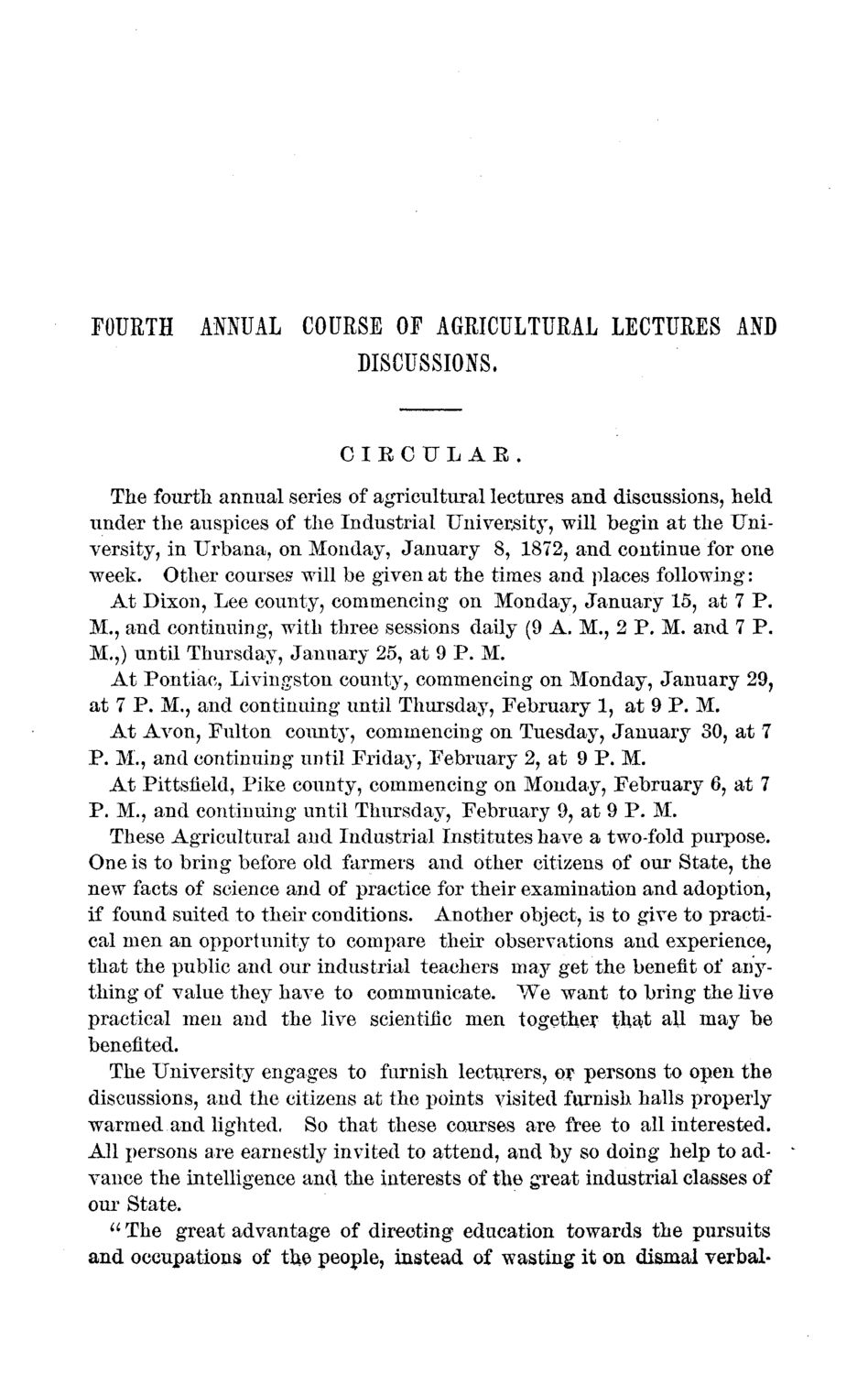| |
| |
Caption: Board of Trustees Minutes - 1872
This is a reduced-resolution page image for fast online browsing.

EXTRACTED TEXT FROM PAGE:
FOURTH ANNUAL COURSE OF AGRICULTURAL LECTURES AND DISCUSSIONS, CIBCULAB. The fourth annual series of agricultural lectures and discussions, held under the auspices of the Industrial University, will begin at the University, in Urbana, on Monday, January 8, 1872, and continue for one week. Other courses will be given at the times and places following: At Dixon, Lee county, commencing on Monday, January 15, at 7 P. M., and continuing, with three sessions daily (9 A. M., 2 P. M. and 7 P . M.,) until Thursday, January 25, at 9 P. M. At Pontiac, Livingston county, commencing on Monday, January 29, at 7 P. M., and continuing until Thursday, February 1, at 9 P. M. At Avon, Fulton county, commencing on Tuesday, January 30, at 7 P. M., and continuing until Friday, February 2, at 9 P. M. At Pittsfield, Pike county, commencing on Monday, February 6, at 7 P. M., and continuing until Thursday, February 9, at 9 P . M. These Agricultural and Industrial Institutes have a two-fold purpose. One is to bring before old farmers and other citizens of our State, the new facts of science and of practice for their examination and adoption, if found suited to their conditions. Another object, is to give to practical men an opportunity to compare their observations and experience, that the public and our industrial teachers may get the benefit of anything of value they have to communicate. We want to bring the live practical men and the live scientific men together that aU may be benefited. The University engages to furnish lecturers, ox persons to open the discussions, and the citizens at the i>oints visited furnish halls properly warmed and lighted. So that these courses are free to all interested. All persons are earnestly invited to attend, and by so doing help to advance the intelligence and the interests of the great industrial classes of our State. " The great advantage of directing education towards the pursuits and occupations of the people, instead of wasting it on dismal verbal-
| |